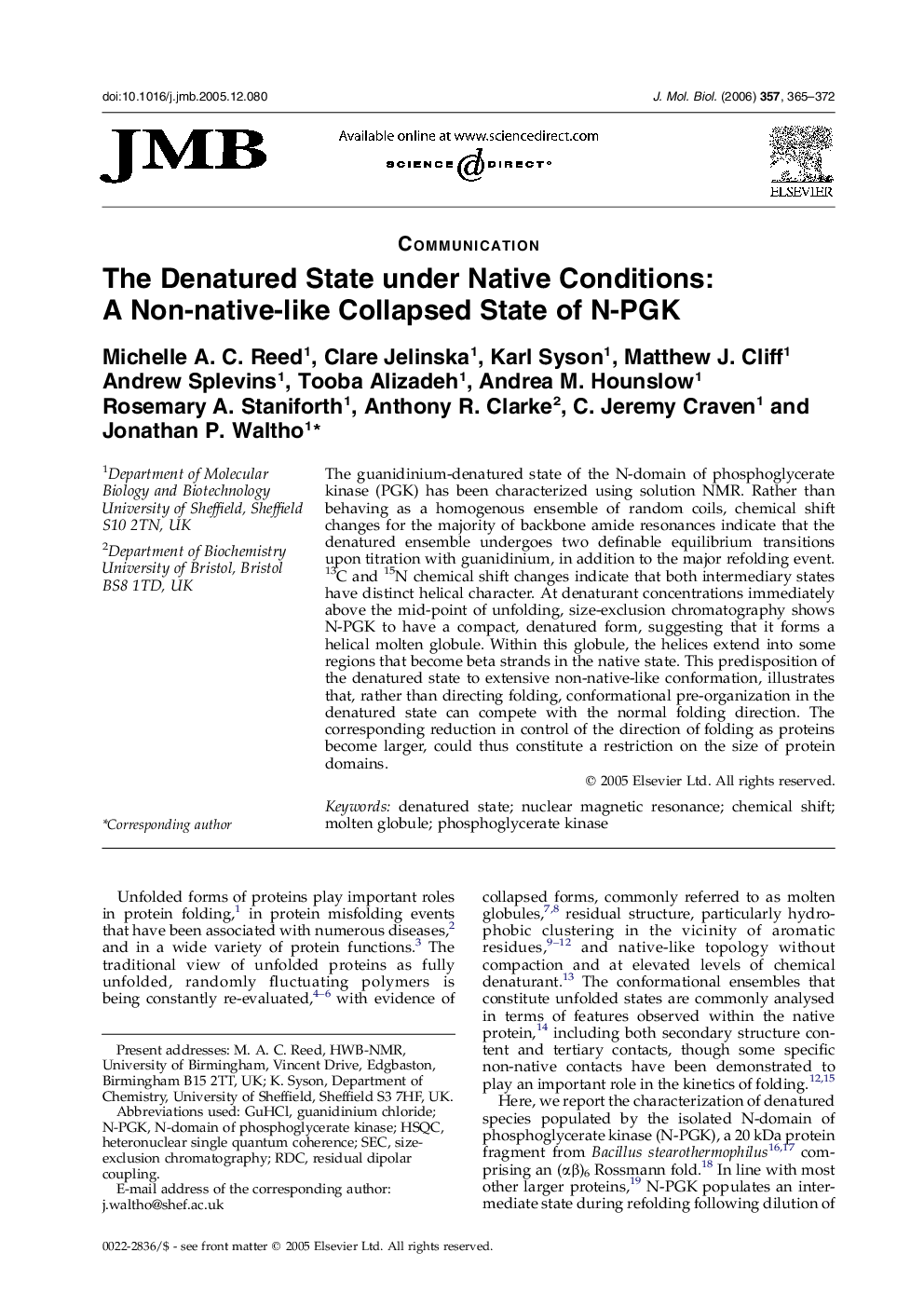| Article ID | Journal | Published Year | Pages | File Type |
|---|---|---|---|---|
| 2189822 | Journal of Molecular Biology | 2006 | 8 Pages |
The guanidinium-denatured state of the N-domain of phosphoglycerate kinase (PGK) has been characterized using solution NMR. Rather than behaving as a homogenous ensemble of random coils, chemical shift changes for the majority of backbone amide resonances indicate that the denatured ensemble undergoes two definable equilibrium transitions upon titration with guanidinium, in addition to the major refolding event. 13C and 15N chemical shift changes indicate that both intermediary states have distinct helical character. At denaturant concentrations immediately above the mid-point of unfolding, size-exclusion chromatography shows N-PGK to have a compact, denatured form, suggesting that it forms a helical molten globule. Within this globule, the helices extend into some regions that become beta strands in the native state. This predisposition of the denatured state to extensive non-native-like conformation, illustrates that, rather than directing folding, conformational pre-organization in the denatured state can compete with the normal folding direction. The corresponding reduction in control of the direction of folding as proteins become larger, could thus constitute a restriction on the size of protein domains.
